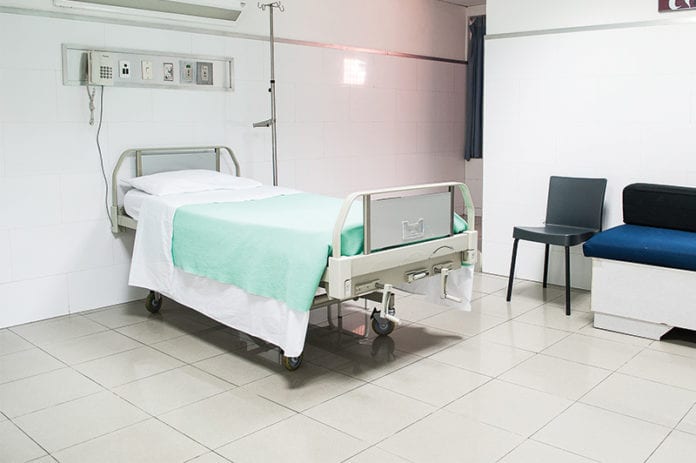Failure to deliver complete nursing care explains why hospitals with lower registered nursing (RN) staff levels have a higher risk of patient death, a new University of Southampton study has shown.
Jane Ball, Principal Research Fellow at the University of Southampton, who led the study, says the results published in the International Journal of Nursing Studies reveal that care left undone due to lack of time is the "missing link" in understanding variation in mortality rates in hospitals.
When RN staffing is lower, necessary care is more likely to be missed. Each 10 per cent increase in the amount of care left undone was associated with a 16 per cent increase in the likelihood of a patient dying following common surgery, the study shows.
The findings come from further investigation of the major RN4CAST study of nurse staffing at hospitals in nine European countries, including 31 NHS acute trusts in England. Previous analysis of the survey showed that lower nurse staffing levels are associated with higher mortality. Missed nursing care was measured through a nurse survey and included activities such as patient surveillance, administering medicine on time, adequate documentation, comforting patients and pain management.
"For years we have known that there is a relationship between nurse staffing levels and hospital variation in mortality rates but we have not had a good explanation as to how or why," Dr Ball comments. "These results give the clearest indication yet that RN staffing levels are not just associated with patient mortality, but that the relationship may be causal."
"If there are not enough registered nurses on hospital wards, necessary care is left undone, and people's lives are put at risk," added Dr Ball.
The analysis also looked at nurse qualification and confirmed that hospitals with higher numbers of registered nurses trained at degree level have lower risk of patient mortality.
Professor Peter Griffiths, Chair of Health Services Research at the University of Southampton, added: "This study reinforces the importance of registered nurses who are trained to a degree level. It is more evidence that shows that you cannot substitute fully qualified RNs with less qualified staff, without taking a risk with patient safety. It is the number of RNs on duty that is key to ensuring complete care and minimising the risk of patients dying."
Co-author Luk Bruyneel, KU Leuven in Belgium, said: "These findings have implications for healthcare managers and policymakers. Monitoring missed care may offer a more responsive and sensitive early-warning system for hospitals to detect problems before patients die. More work needs to be done worldwide to ensure we utilise this data for the benefit of patients."


Maybe they should hire more LPN.s, instead of making it all about the money!
I agree, things that are not getting done are things like when a patient has every 2 hour dressing changes but is on a heavy cardiac unit and you have 5 other patients. There is just not enough time in the shift to complete every task
The lack of adequate staffing does affect patient outcome in a negative way. Changes in the patients condition do not receive attention quick enough. Also, the nurses just burn out due to frustration and negative reinforcement. Turnover is higher. The only things that the nurse has more of is patients and paperwork. It has gotten to the point that doing it all is impossible. There is no quality time to spend with patients. I just give up.
administration don”t give a Sh–t. And the general public do no know about it, print this this on your post. Nurses are not together and that were the administration wants it
Karen, remember “If it wasn’t charted, it wasn’t done”? I don’t roll that way, not why I became a nurse…
That’s why I am seeing a lot of charting without the task being done.
I am a RN with a associates degree in nursing and I feel as qualified as my counterparts who have a higher degree related to my 25 plus years of experience and my willingness to keep up with standards
Also the problem lies in budget cuts. I am an Rn, I previously worked at a major hospital in West Tn. The nurse to patient ratio was fairly good 4 to 5 patients per nurse on a cardiac floor, but the catch was budget cuts meant no secretaries, no one to watch the cardiac monitors while the nurses were in patient rooms, less CNA’s if you had one on the floor, and alot of times nurses were also responsible for passing out meals. What alot of people don’t realize I guess is that nurses do more than pass medications.
So true. That problem is everywhere. Money rules all
What care is being left undone
What’s left undone?? Post op getting each patient UP out of bed, an 8 minute round trip to toilet, 3x a shift. Getting up to chair. Walking them in the halls. Demonstrating and cheerleading them on the incentive spirometer. Early interventions for bowel obstruction or constipation. Timely dressing changes. Excellent pain management. Excellent teaching of meds, exercises, signs of infection & embolisms. Thorough skin assessments. Thorough MAR & home med list assessment. These are just SOME of the things left off the table when ratio is too high.